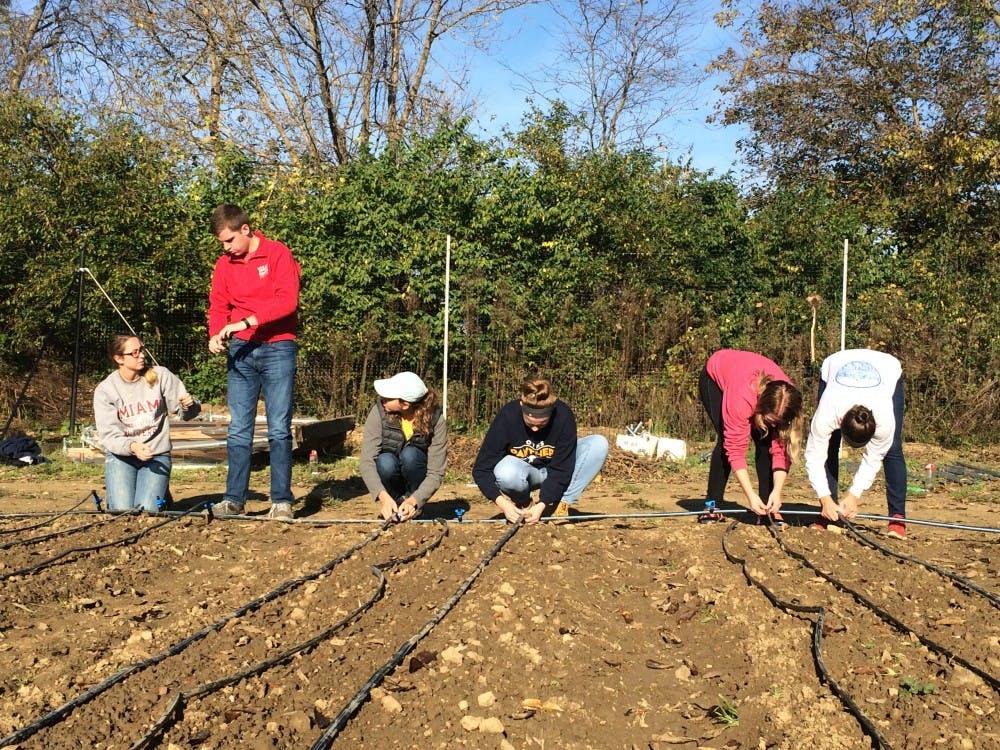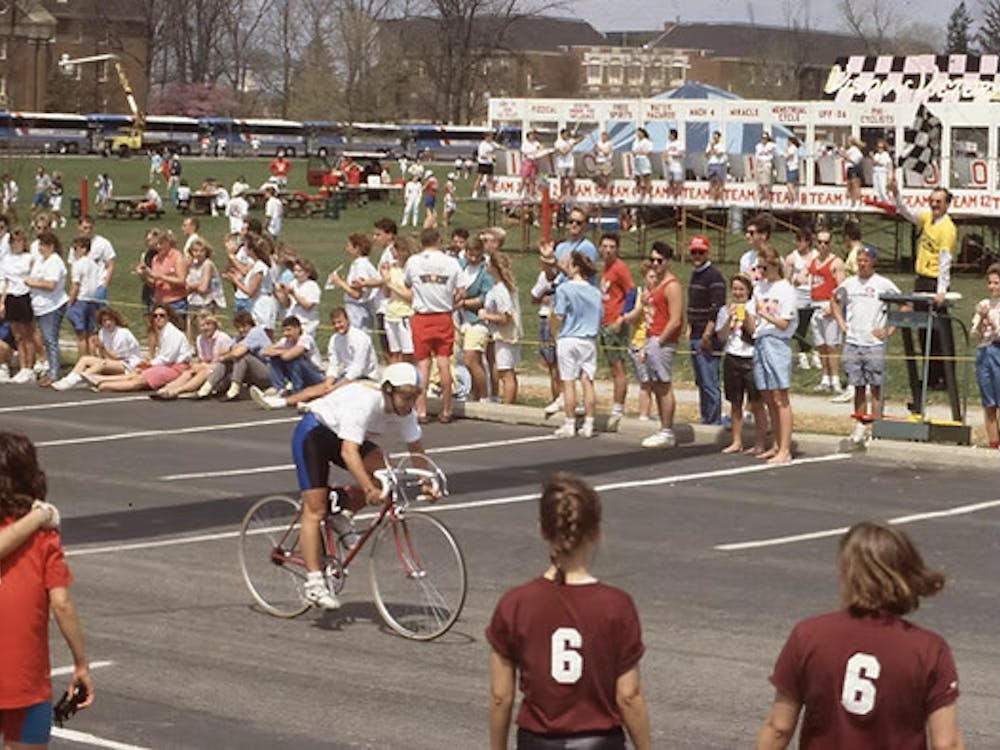His dark brown dress shoes crunch fallen leaves and gravel. He just got off work in the Office of Institutional Relations, where he is the legislative aide.
This is junior Kyle Chance. His khakis, grey sweater and purple tie stand out against the rows and rows of crops. The sprawling eight acres are surrounded by the changing colors of fall.
There are tomatoes, peppers, garlic and many other produce items planted behind a tall chain-link fence.
This is the Miami Institute for Food. The farm, which was started last year, is currently planted on one acre and trying to expand on another one.
Chance is an unlikely candidate for the Institute for Food. But, somehow, he is at home walking around the farm in his dress clothes. His light blue undershirt peeks out from under his sweater, mimicking the freshly-planted onions that are starting to poke through the dark earth beneath his feet.
"Even though it's a multidisciplinary organization, we all have the same underlying passions," Chance said. "We all want the institute to succeed. We all want the farm to grow."
He is a political science major with plans to work in DC after graduation -- he might even run for office one day. But the contrast to his normal routine is precisely what Chance likes about the Institute for Food.
"I'm all about the liberal education," he said. "You get your hands dirty in this class. Literally."
Chance hopes to bring what he's learned through working on the farm back into his political science classes and further into the future. The Institute for Food has taught him to look at the big picture.
"Let's say I get a job in DC," he said. "If I know what modern agriculture is and the problems that farmers are facing, I can do my job better."
While on the farm, the students do "anything and everything that goes into successfully growing an organic farm," senior Claire Burch said.
They have helped set up drip irrigation tape, seeded the property, learned to germinate produce in the greenhouse, tilled beds and harvested produce.
Enjoy what you're reading?
Signup for our newsletter
Burch will be graduating in December; she happened across a flier encouraging students to apply for the Miami Institute for Food in the architecture building and it piqued her interest.
"I wish I had discovered this opportunity sooner," she said.
Senior and self-described foodie Maggie Winstel also wishes she would have stumbled across this opportunity sooner.
She is a psychology major with a sustainability co-major and marketing minor. She originally wanted to go into food studies, but decided to pursue other interests instead. The farm helped her reconnect to that passion.
"Contributing to the Institute for Food is the best opportunity for me to make an impact," Winstel said.

Chance standing on the farm. | Photo by Bonnie Meibers
During her summer abroad in Denmark, she studied the food revolution that has put Copenhagen at the forefront of the sustainable agriculture revolution. Her studies took her into the kitchens and food laboratories of Noma, ranked the best restaurant in the world from 2010 to 2014.
Winstel is very passionate about food and its impact on people; this is one reason that she chose to study psychology. For her senior capstone class, she did a study on how food affects people's positivity and moods. She called this "The Sandwich Project."
"It's exciting to see the produce we plant begin to grow and flourish on the land," Burch said. "It's just so exciting to be a part of the beginning steps of what could be such an awesome part of Miami's curriculum and its community."
Burch is a zoology major with an environmental science co-major. She isn't exactly sure what she wants to do after graduation, but she isn't closed off from having a role at a farm in the future. Burch is waiting to hear back about an opportunity at the Cincinnati Zoo and looking into volunteering opportunities abroad.
"I would definitely love to get my hands dirty on a farm in the future if the work I do takes me back to one," Burch said.
A love of food and a longing to understand it and where it comes from are the common threads that connect all of the students in the class together.
"Naturally, [spending time together] builds a sense of community," Winstel said.
Working on the farm together has created a "family" atmosphere for the students, who have grown close to each other by working on something they're all equally passionate about. For many, it hardly feels like school.
"I can't believe that this is a class that I actually get credit for," Chance said.




